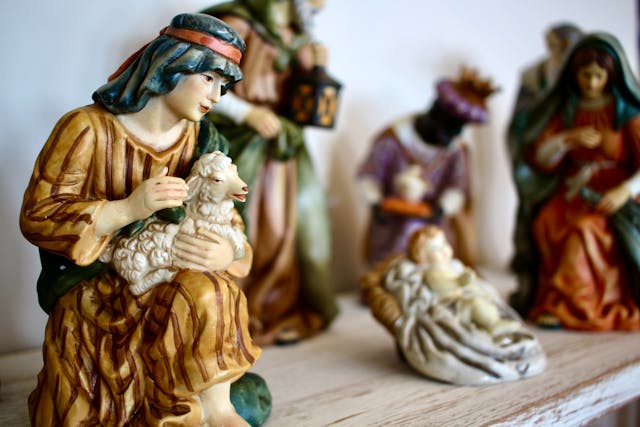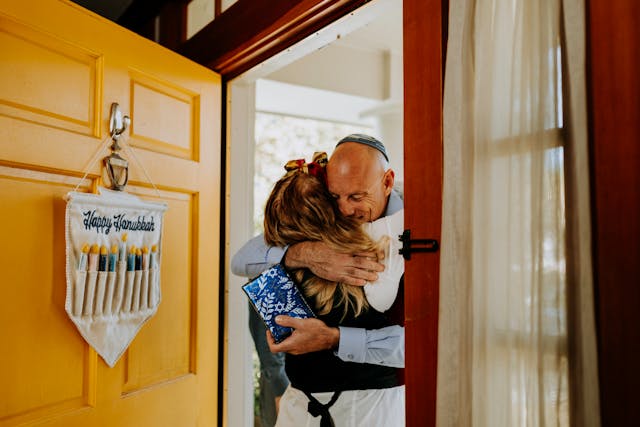Understanding and Celebrating Religious Holidays
Religious holidays are deeply rooted in faith, tradition, and cultural history. They offer a unique opportunity to reflect, connect, and celebrate with loved ones. For those outside a particular religion, understanding these holidays can foster respect, inclusivity, and deeper connections with others. In this article, we’ll explore the significance of religious holidays and how to embrace them in a spirit of unity and celebration.

What Are Religious Holidays?
Religious holidays mark sacred events, beliefs, or milestones in various faiths.
Significance
-
They commemorate events such as the birth of a prophet, a divine miracle, or the changing of seasons tied to spirituality.
-
Many holidays include rituals, prayers, or acts of devotion, often accompanied by communal gatherings and celebrations.
Common Examples
-
Christmas (Christianity): Celebrating the birth of Jesus Christ.
-
Ramadan and Eid al-Fitr (Islam): A month of fasting followed by a festival of breaking the fast.
-
Diwali (Hinduism): The Festival of Lights, symbolizing the victory of light over darkness.
-
Passover (Judaism): Commemorating the Exodus of the Israelites from Egypt.
Religious holidays are not only days of observance but also a way to pass down traditions and values across generations.
The Importance of Understanding Religious Holidays
Taking the time to learn about religious holidays builds bridges across cultures and faiths.
Promoting Inclusivity
-
Recognizing holidays in workplaces, schools, and communities ensures everyone feels respected.
-
Simple gestures, like acknowledging a holiday or providing time off for observance, foster a sense of belonging.
Encouraging Cultural Exchange
Learning about the traditions and beliefs of others can enrich your own understanding of the world and promote mutual respect.
Celebrating Religious Holidays Respectfully
If you’re not part of a faith but wish to join in celebrating a holiday, approach it with sensitivity and openness.
Do Your Research
-
Learn the basics about the holiday’s origins, significance, and customs.
-
Understand which practices are sacred and which are more flexible or celebratory.
Participate with Humility
-
If invited to join a celebration, ask questions about what’s expected, such as dress codes or specific rituals.
-
Avoid making assumptions or judgments about practices that may seem unfamiliar.
Use Appropriate Greetings
-
Tailor your greetings to the specific holiday. For example:
-
“Merry Christmas” for Christians.
-
“Eid Mubarak” for Muslims.
-
“Happy Diwali” for Hindus.
Unique Traditions from Around the World
Religious holidays are celebrated in diverse ways, often blending spiritual practices with local customs.
Examples of Unique Traditions
-
Hanukkah (Judaism): Lighting the menorah for eight nights, representing the miracle of the oil.
-
Vesak (Buddhism): Observing Buddha’s birth, enlightenment, and death through meditation and acts of kindness.
-
Nowruz (Zoroastrianism): Marking the Persian New Year with feasts, dancing, and cleaning rituals.
-
Lunar New Year (Various East Asian Religions): Honoring ancestors and welcoming prosperity with symbolic foods and festivities.
Understanding these traditions reveals the universal themes of gratitude, renewal, and community found in many religious holidays.
Balancing Personal and Religious Observance
For individuals celebrating their own religious holidays, balancing personal spirituality with modern obligations can be challenging.
Tips for Observing Your Faith
-
Plan Ahead: Notify your employer or school about time off needed for observance.
-
Create Space for Reflection: Even if you’re busy, set aside time for prayer or meditation.
-
Involve Your Community: Share your traditions with others to enhance the sense of celebration.

Building Unity Through Shared Celebrations
Religious holidays provide a platform for fostering unity and shared joy across diverse communities.
Community Events
-
Many cities host interfaith events, such as Christmas markets, Diwali festivals, or Ramadan iftar dinners.
-
Participating in these events allows people of all backgrounds to celebrate together.
Educational Opportunities
-
Schools and workplaces can educate people about major holidays, promoting inclusivity and understanding.
-
Hosting informational sessions or cultural exchange programs helps demystify religious practices and beliefs.
Conclusion: Celebrating Diversity Through Understanding
Religious holidays are more than just dates on a calendar—they are moments of deep cultural and spiritual significance. By learning about and embracing the traditions of others, we can foster greater harmony and connection in our increasingly globalized world.
Whether it’s joining a friend for their holiday celebration, learning the meaning behind a particular ritual, or simply extending a thoughtful greeting, small acts of understanding can go a long way in honoring the diversity of human faith and culture. Let’s celebrate not just the holidays, but the unity they inspire in us all.












